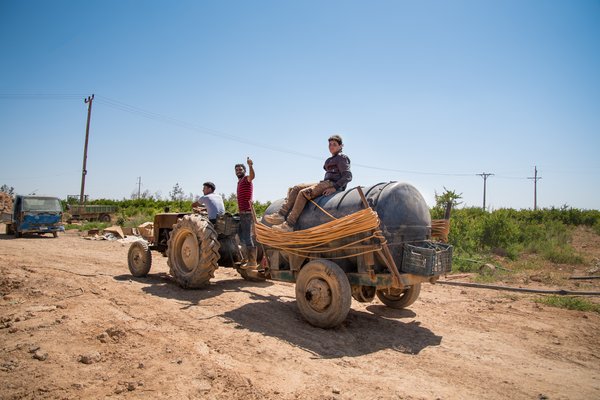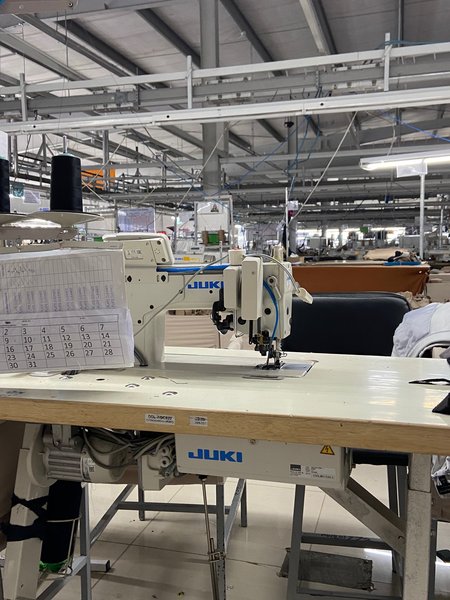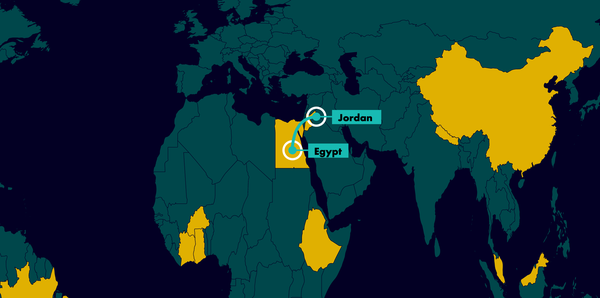The Information and Research Center of the King Hussein Foundation led a discussion on key issues concerning Egyptian migrant labour with the Government of Jordan ahead of the UPR submission. This post was authored by Dima Al Qutub, Head of Communications at IRCKHF.
The MIDEQ team in Jordan, The Information and Research Center (IRCKHF), partnered with the Human Rights Unit at the Prime Ministry of Jordan to host a one-day consultation meeting with representatives from the Ministry of Labour, the Ministry of Interior, civil society organisations, academic institutions, and the Ministry of Foreign Affairs on 10 July 2023.
The consultation session discussed reports on human rights in preparation for Jordan's Fourth Universal Periodic Review (UPR) submission, which will be submitted to the United Nations. The UPR is a process provides all UN member states the opportunity to review the human rights records of other member states and identify areas for improvement.
IRCKHF worked with Tamkeen for Legal Aid and Human Rights on submitting a joint UPR on the rights of Egyptian workers in Jordan. During the event, IRCKHF and Tamkeen shared the UPR's main conclusions and recommendations with the representatives from the government of Jordan. The consultation meeting allowed Tamkeen and IRCKHF to share valuable input and insights to help shape Jordan's report and ensure that it accurately reflects the current situation in the country by highlighting human rights challenges and providing key recommendations.
Dr. Ayman Halaseh, Director of IRCKHF, stressed the importance of the consultation session as a chance to open a dialogue between the government and civil society organisations. He added, "I believe that this is an important opportunity to represent recommendations in the presence of the governmental team that will be preparing the report."
During the event, IRCKHF and Tamkeen highlighted the following recommendations from the joint UPR report:
- Implementation and amendment of the Human Trafficking Law. The current law does not define forced labour in law, while the law also does not include articles stipulating legal assistance provided to them.
- Demanding the inclusion of agricultural workers in social and health insurance. When the system for protecting workers in agriculture was approved, projects that employ fewer than three workers were excluded. This excluded large numbers of farmers from social protection.
- Movement of migrant workers. The session urged decision-makers to facilitate the movement of migrant workers and accord them preferential travel and transportation treatment. This is in addition to amending the Agriculture Regulation of 2021, to ensure that agriculture workers enjoy their full rights, benefit from social protection, and impose penalties on employers who violate their rights.
- The end-of-service benefits allocated by the Social Security Corporation. These services for Egyptian workers are their inalienable right and should not be jeopardised by administrative and bureaucratic procedures.
- Develop an equitable and inclusive framework that promotes equal treatment and non-discrimination among migrants and protects the rights of all migrant workers, irrespective of their job/work category.
- Increase the capacity of labour inspectors to regularly monitor the working conditions of migrant workers and to ensure that sanctions for violations of workers' rights are effectively implemented.
In future, the Information and Research Center will work closely with the Human Rights Unit at the Prime Ministry to support them with some of the main UPR recommendations to enhance the conditions of migrant workers in Jordan.



